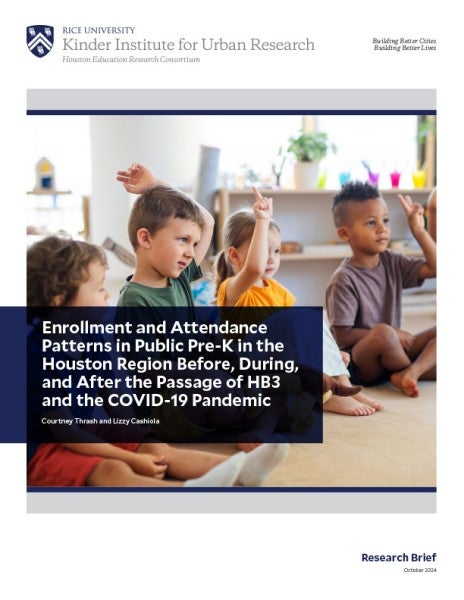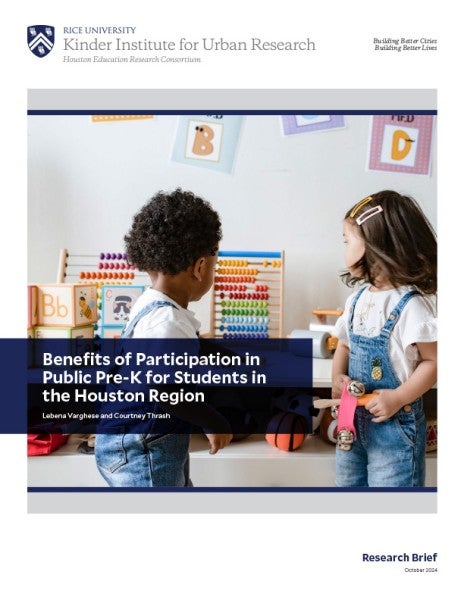Since 2018, two major changes have occurred in Texas that have affected public prekindergarten (pre-K) enrollment and attendance: the passage of Texas House Bill 3 (HB3) in 2019, which mandated that early childhood education programs provide full-day pre-K to all eligible 4-year-olds, and the COVID-19 pandemic. To understand the influence of both, the Kinder Institute’s Houston Education Research Consortium examined the experience of pre-K students in school districts in the Houston region from 2018 to 2023.
A second brief looks at how participation in public pre-K programs is associated with early elementary outcomes such as kindergarten readiness, chronic absenteeism and English proficiency, particularly for emergent bilingual students.
Key findings
- Pre-K enrollment increased after the passage of HB3, declined after the onset of the COVID-19 pandemic, and has almost rebounded to pre-COVID numbers.
- The COVID-19 pandemic disproportionately affected pre-K students. Between the 2019-20 and 2020-21 school years, pre-K enrollment declined by 22%. In comparison, elementary school enrollment declined by a smaller share and middle and high school enrollment remained similar.
- While attendance rates declined for students in all grades, average pre-K rates in the 2021-22 school year were right below 90%, the cutoff for chronic absenteeism.
- Compared to students who did not attend public pre-K, those who did attend were:
- more likely to be ready for kindergarten
- less likely to be chronically absent in early elementary school
- Emergent bilingual students who attended public pre-K in the Houston region were more likely to score higher on the English proficiency test in early elementary school than those who did not.





